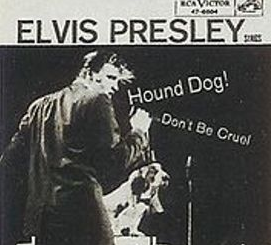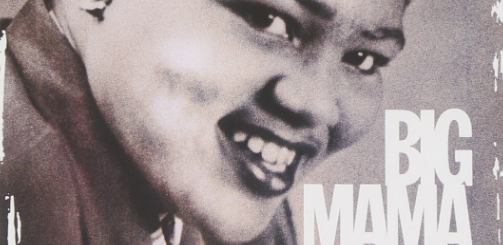26 In The Ghetto by Elvis Presley Lyrics Meaning – Unveiling the Heart-Wrenching Narrative of Urban Strife
Lyrics
On a cold and gray Chicago mornin’
A poor little baby child is born
In the ghetto
And his mama cries
Cause if there’s one thing that she don’t need
It’s another hungry mouth to feed
In the ghetto
People, don’t you understand
The child needs a helping hand
Or he’ll grow to be an angry young man some day
Take a look at you and me,
Are we too blind to see,
Do we simply turn our heads
And look the other way
Well the world turns
And a hungry little boy with a runny nose
Plays in the street as the cold wind blows
In the ghetto
And his hunger burns
So he starts to roam the streets at night
And he learns how to steal
And he learns how to fight
In the ghetto
Then one night in desperation
A young man breaks away
He buys a gun, steals a car,
Tries to run, but he don’t get far
And his mama cries
As a crowd gathers ’round an angry young man
Face down on the street with a gun in his hand
In the ghetto
As her young man dies,
On a cold and gray Chicago mornin’,
Another little baby child is born
In the ghetto
And his mama cries
The visceral storytelling in Elvis Presley’s ‘In the Ghetto’ captures listeners, haunting with its stark portrayal of poverty and its cycle. Released in 1969 at the height of civil unrest and burgeoning awareness of social injustices, Presley’s ballad resonates as a poignant narrative on the struggles inherent within the ghettos of America. Its simplicity and earnestness not only charted a commercial success but sowed a seed of consciousness that would germinate in the hearts of many.
‘In the Ghetto’ was a daring choice for the King of Rock and Roll, shifting away from his usual repertoire of hip-shaking hits to spotlight a somber reality. Engaging with this song reveals layers of empathy, a call to action, and a reflection of systemic issues that are as relevant today as they were over fifty years ago.
The Soundscape of Sorrow – Beyond the Melody
The first chord strikes with a chill reflecting the ‘cold and gray’ atmosphere described in the lyrics. The simplistic arrangement supports Elvis’s tender vocal delivery, emphasizing the story over the stardom. Each note seems to echo the icy winds and the forlorn cries of the baby born to the misfortune of poverty.
The haunting beauty of ‘In the Ghetto’ lies within its stark arrangement, drawing attention to the gravity of the narrative. Presley’s voice carries the weight of empathy, never overshadowing the subject matter, ensuring that the focus remains on the song’s powerful message rather than on Elvis himself.
The Perpetual Cycle of Poverty – A Close Look at Consequence
Elvis unfolds a cycle as old as time: a child born into deprivation grows up in an environment that fosters desperation, leading to destructive actions. This perpetuation of hardship speaks to systemic issues, subtly suggesting that the ‘hungry little boy with a runny nose’ is a product of society’s neglect.
The unsettlingly repetitive nature of this cycle is underscored in the closing stanza, where the birth of another child parallels the song’s opening, highlighting a relentless loop of suffering. The implication is clear – without intervention, the pattern will continue unabated, a dire fate for generations to come.
Portrait of the Invisible: The Song’s Hidden Social Commentary
Although it never becomes overtly political, ‘In the Ghetto’ is laced with societal critique. Presley’s portrayal of the ghetto extends beyond the boundary of race, reflecting instead on the universality of poverty. The song’s plea is directed not at any specific group, but at humanity as a whole to acknowledge and assist those in need.
Additionally, the question ‘Are we too blind to see?’ hits hard, challenging the listener to confront their own apathy. It begs a reflection – do we, as a society, choose ignorance over action, comfort over responsibility? The hidden challenge in the song is a wake-up call from the voice of a generation.
Moments That Cut Deep: The Song’s Most Memorable Lines
The lyric ‘And his mama cries’ is a devastating refrain, reverberating the endless sorrow of mothers in ghettos who watch their children succumb to the streets. It’s a stark reminder of the human cost of poverty, a blade to complacency that demands empathy for those living on society’s margins.
Another line that imprints on the memory, ‘Or he’ll grow to be an angry young man some day,’ resonates with the current dialogue on youth in disenfranchisement. It encapsulates the anger that burgeons in the face of injustice and the inevitability of its manifestation.
The Echoes of ‘In the Ghetto’ in Today’s World
Decades may have passed since its release, but ‘In the Ghetto’ holds its ground as a timeless reminder of issues that have yet to wane. The current socio-political climate finds these lyrics still poignantly relevant – a testament to music’s power to transcend time and impact generations.
From Black Lives Matter to the broader spectrum of social movements, the themes of ‘In the Ghetto’ resonate with the cry for a society that supports all its members. The revival of such profound tracks in contemporary protests speaks to the enduring legacy left by Elvis and his willingness to tackle uncomfortable truths through his artistry.








